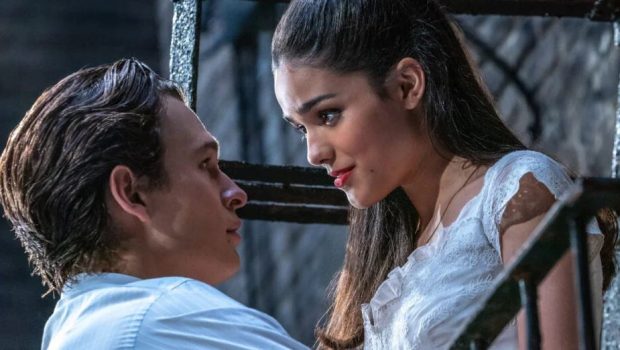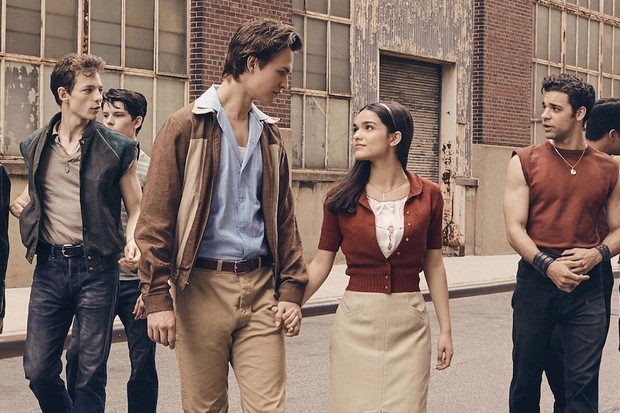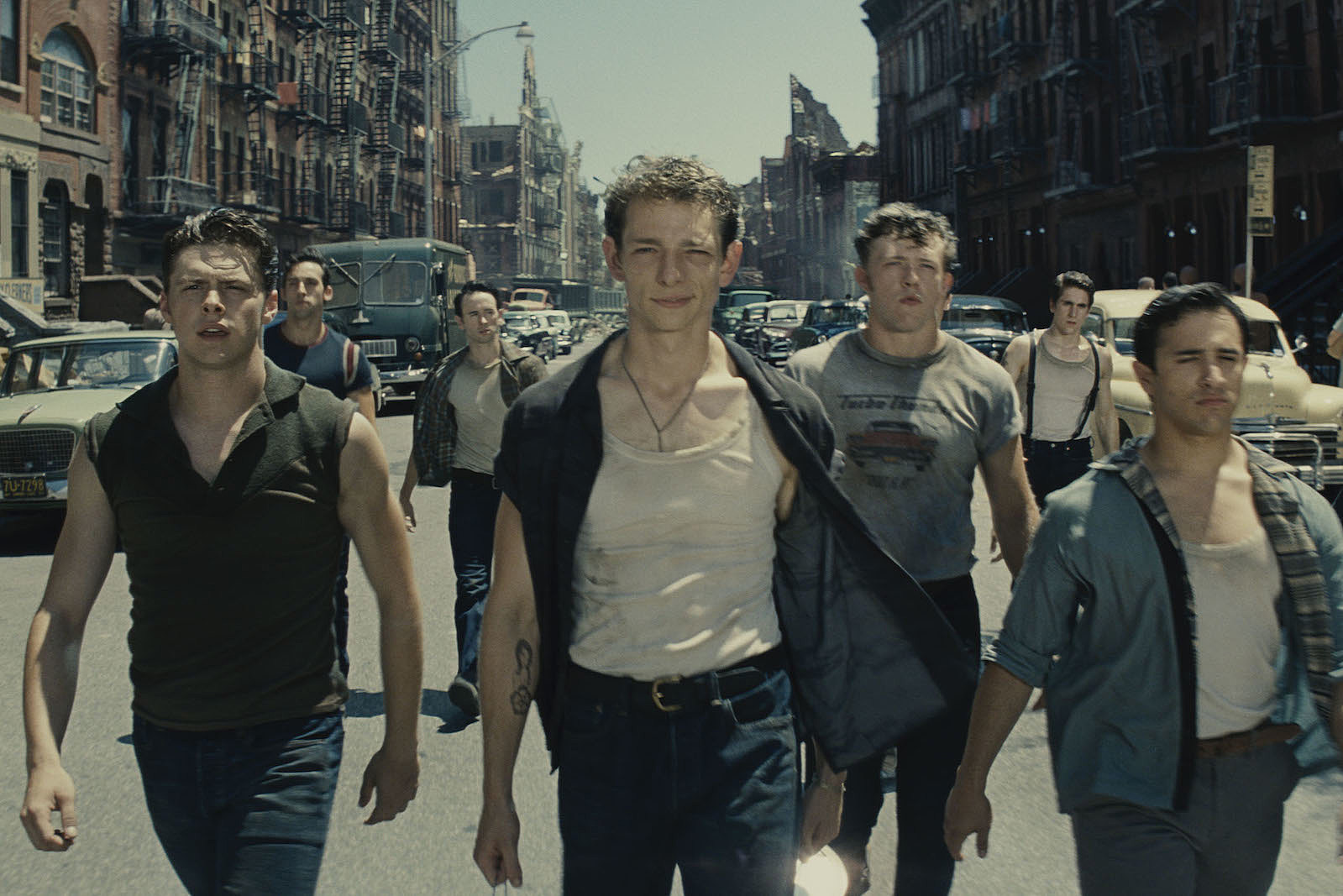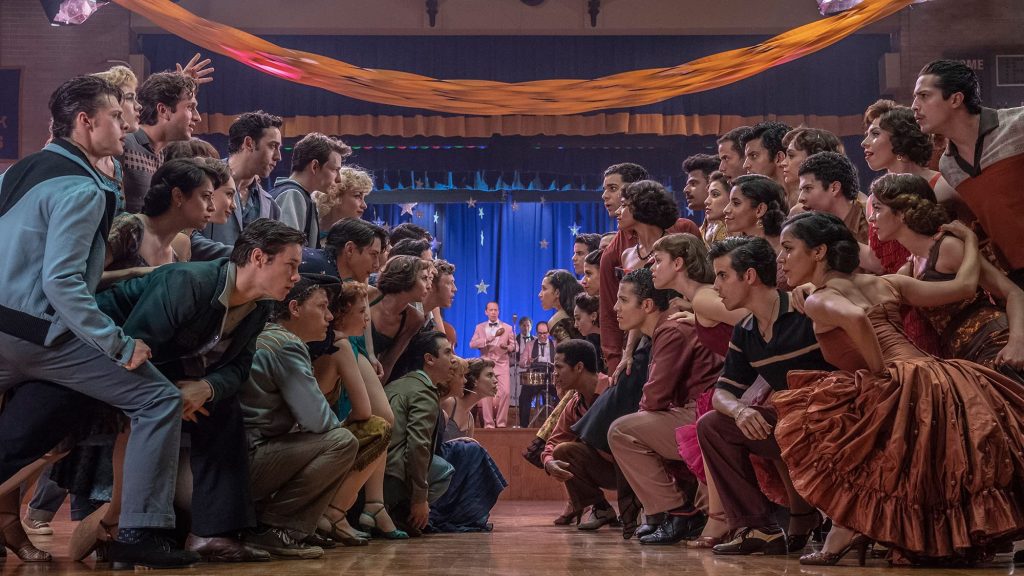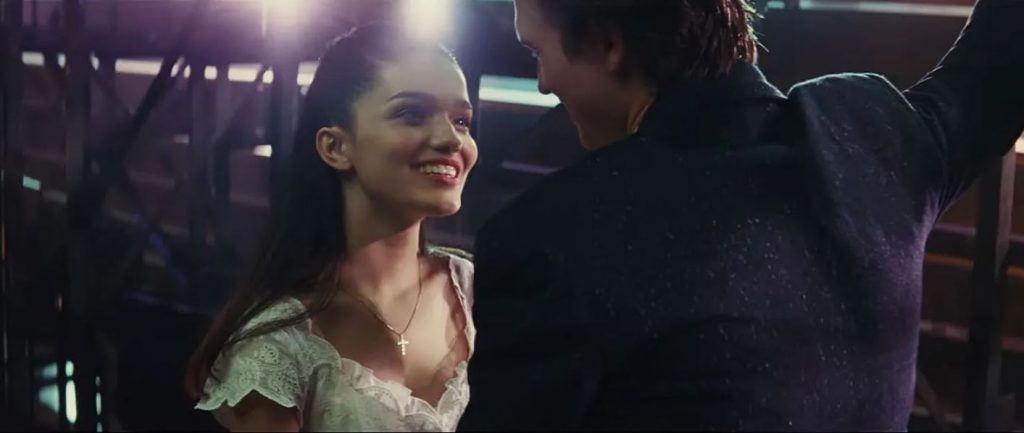West Side Story – Film Review
Reviewed by Harris Dang on the 24th of December 2021
20th Century Pictures presents a film by Steven Spielberg
Produced by Steven Spielberg, Kristie Macosko Krieger, and Kevin McCollum
Starring Ansel Elgort, Rachel Zegler, Ariana DeBose, David Alvarez, Mike Faist, Rita Moreno, Corey Stoll, Brian d’Arcy James, and Josh Andres Rivera
Running Time: 156 minutes
Rating: M
Release Date: the 26th of December 2021
Trigger warning: Sexual assault
Before we start the review for Steven Spielberg’s latest film, West Side Story, we must address the elephant in the room. Today’s elephant (which will be one of many in the future) is the film’s lead actor, Ansel Elgort, of Baby Driver and The Fault in Our Stars fame. There is another streak of infamy he is known for involving triggering issues like sexual assault. None of this should ever be condoned and it while it may be detrimental to the experience of watching the film, it is imperative to point out the gravely serious matter at hand, especially when the actor is the film’s romantic lead.
West Side Story is the newest adaptation of the 1957 titular play previously adapted into a film in 1961. Both versions have received critical acclaim. Its resemblance to the William Shakespeare play Romeo and Juliet and the musical works of both Elmer Bernstein and Stephen Sondheim have garnered the work numerous accolades that still resonates with audiences today.
When news came about that renowned filmmaker Steven Spielberg was adapting the play, there was a mixed response. Half of the discourse came from people who essentially said, ‘if it ain’t broke, don’t fix it’. The other half of the discourse stated it is Spielberg handling the reins on his first musical. On that note, we had high hopes this will be another banger on Spielberg’s impressive filmography. Does the film succeed?
West Side Story is set in Manhattan, New York City, 1957. It tells the story of Tony and Maria (Ansel Elgort and Rachel Zegler), two youths from opposing sides, the white youths in The Jets led by Riff (Mike Faist) and the Puerto Ricans in The Sharks led by Bernando (David Alvarez), who fall in love during a territorial gang war.
Tony had just left prison on parole and wants to change his ways while Maria is stuck between family tradition and yearning for autonomy as she is engaged to be married to family friend, Chino (an understated Josh Andrés Rivera). The couple strive to be together and are more than willing to overcome the odds, but their love comes at an insurmountable price that will affect all around them.
This year alone, we have had a great crop of musicals that shows Hollywood thinks people still clamour for them. However, West Side Story has failed to reach audiences, which is a shame considering it is one of Spielberg’s best. In recent interviews, Spielberg has said he has had a lifetime love for musicals, especially West Side Story. His admiration meant he pledged to adapt it. Seeing the results up on the big screen, it is easy to understand why it meant so much to him.
The craftsmanship, staging, blocking, and imagery on display, with help from frequent collaborator DOP Janusz Kaminski and editors Michael Kahn and Sarah Broshar, is emblematic of the storytelling and genre Spielberg is honouring that we the audience have taken the director’s work for granted since his efforts have always been at such a high standard.
The very first shot involves the camera swooping over the environment of San Juan Hill. It establishes the theatrical tone, the weighty conflicts, and the bombastically gritty environment so succinctly and vividly the audience knows they are in for something enjoyably otherworldly yet emotionally felt. Another standout moment is during the ‘Maria’ number, where Tony wanders through the block looking for Maria and stands on top of a puddle. Now that may not sound much on paper, but the reflection the image carries and the mood Elgort projects is pure cinematic beauty, the type of peak visual storytelling films generally lack these days.
One final moment involves the meeting of both Tony and Maria at the town dance. The feeling of love at first sight the characters feel and the environment and people around them figuratively disappearing is so amazingly captured even the distance between them feels so minimal and intimate. This writer could talk forever about the moments Spielberg has created. However, to keep it brief, the cinematic panache he displays is worth the price of admission alone.
As for the adaptation of the play, Spielberg and playwright/screenwriter Tony Kushner have wisely mitigated most of the problematic elements of the original film, including minimising the stereotypical portrayals of Puerto Ricans in terms of demeanour and reputation through solid characterisations. The story is inherently timeless as it was over sixty years ago. However, Spielberg and Kushner manage to balance the visual between modern and nostalgic. They make it accessible for all audiences by mixing the grit alongside the theatrical feel.
The casting is also more diverse as it does not resort to problematic ways like race-washing [sic]. Similarly, Spielberg’s decision not to subtitle the spoken Spanish dialogue is a smart decision. It makes the interactions feel lived-in and believable and trusts the actors to imbue their roles with life and heart. The expansion of roles, including the role of Doc changed as Valentina (played by Rita Moreno, who starred in the 1961 film), lends the film freshness.
The two have also changed the shape of musical numbers to reflect the play more than the 1961 adaptation as well as fit the modern take they are achieving. As a result, their approach makes the shifts in tone more unruly, particularly in the case of the number for ‘Cool’, which is adapted in ways for Tony to stop conflict as opposed to Riff encouraging it.
The ensemble cast all deliver stellar work and add punch to the drama and music. Standouts include Faist, who brings much vitality and white-knuckle charisma to the role of Riff that his rebellious attitude feels enjoyably infectious and believably dangerous.
There is also Alvarez, whose roughnecked charm and headstrong demeanour somehow make the role of Bernardo feel towering and relatable at the same time. Ariana DeBose is an absolute wonder as Anita, whose grace and energy brings vibrancy and poignancy, especially during the film’s third act. Even Moreno is fantastic in the surprisingly substantial role of Valentina, lending gravitas to proceedings by playing a paternal mentor role to both opposing sides.
The real star of the film is Zegler as Maria. She makes the character arc, changing from a girl with forceful naivete to a young woman with strong resolve and a streak of cynicism, feel extremely convincing and her musical chops are striking in ways that hit operatic and emotional levels with effortless skill. However, Elgort is the film’s weak link. He suffices well enough in the role of Tony as he pulls off the physicality of the role, particularly in the ‘Cool’ musical number alongside Faist.
He also brings decent chops with his acting when meshing the believably emotional stakes of his character with West Side’s operatic tone. In the final scene he almost bears resemblance to a young Marlon Brando in On the Waterfront (1954). Yet his performance is a bit too stoic for its own good (particularly in the first act), which makes the course of romance feel a bit rocky. Given the weight of the news around him, the parallels between the two could potentially trigger and deter audiences.
It is inevitable to compare this film to the 1961 adaptation, but it just feels unnecessary. It is not like comparing apples and oranges but more like comparing one apple to another apple. They both stand out in their own ways and are both delicious. In the case of the 2021 adaptation, Spielberg and co. have delivered a startlingly accomplished piece of work that proves the filmmaker never ceases to surprise and amaze audiences with his craft. Highly recommended.
Summary: Spielberg and co. have delivered a startlingly accomplished piece of work that proves the filmmaker never ceases to surprise and amaze audiences with his craft. Highly recommended.


